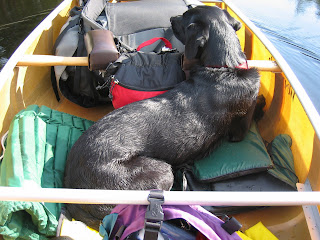 I just found out that I was approved to attend a technology workshop in June that is in Georgia. I was thrilled that I was selected. It’s a great opportunity. Teachers don’t often get chances to travel to state of the art conferences.
I just found out that I was approved to attend a technology workshop in June that is in Georgia. I was thrilled that I was selected. It’s a great opportunity. Teachers don’t often get chances to travel to state of the art conferences.Then I remembered that
I
hate
to
fly
It’s not the flying part that I don’t like. It’s the build up to the flight. I worry the entire ride to the airport. Mostly about not getting an aisle seat when I check in. I have had times that I wasn’t able to get a seat assignment prior to arriving at the airport. This creates even more anxiety. I get this picture of myself sitting in a cramped seat without elbow room. I’m sure that the plane I’m getting on is unbearably hot. And the takeoff is probably going to be delayed, so I will have to sit in the plane sweating and squished—probably in a middle seat.
Once I actually get on the plane I am o.k. I realize that there is room, the temperature isn’t close to sauna like, and there is air to breath. I can usually just take my aisle seat and set up my dvd player and be quite content.
I guess that you could say that I am a reluctant traveler. Friends and family that have flown with me cringe at the thought of sharing that opportunity with me again. They say that I make them nuts. (They, of course, say it in a gentle way)
So I squirm a little thinking of it.
Then I realize that I will be flying with Dixie for the first time.
Oh no.
Holy smokes.
I can probably cope with flying alone. But flying alone with Dixie. Ahh!
How do you even fly with a dog?! How will I convince my lab that flying is no big deal when I’m a basket case?!
I spent a day or two panicking about this, but then realized that I would make my life much easier, eliminate many of my worries, and fly first class. (no, my district won't pay for first class, just coach. So I'll be paying the difference) I call Northwest and talk to a very nice woman who gets my ticket squared away (and it’s really not much more than coach—I can’t believe it!). She asks if I would like an aisle or window. Of course I say aisle. Then I mention that I have a service animal that will be traveling with me. She asks if it is a dog or a monkey.
A MONKEY? Who’s heard of a service monkey. Whenever I think of trained monkeys, I always get a picture in my mind of that movie – can’t remember the name- but it had a guy and his monkey who rode around with him in a truck. The monkey wore a little red, hooded sweatshirt and jeans. Very cute. Then I thought of the monkeys that you see on public television that are trained to use sign language to communicate. I don’t think I would want a monkey pulling at my hand and using sign language to tell me I should test my blood sugar, or screaming at me if I didn’t promptly treat a low.
I tell the woman that Dixie is a dog. Then she asks if she is a Chihuahua. (WHAT?!) I tell her that she is a 55 pound lab mix. She says that I will need to sit in seat 1-A, which is the “handicapped” seat. I assure her that I’m not handicapped, and don’t need a special seat. (although friends would say that I’m handicapped by my wacky traveling behaviors:-) She says that it’s the seat with the most room, so Dixie will have plenty of space to stretch out. Oh, o.k.
I got off the phone and took a deep breath. I can do this. I’m sure Dixie will love Atlanta.
I’m all lined up to travel. If anyone happens to lurk by and read this, and works in the airline or vet business, I’d love to have some tips for flying with a dog.
